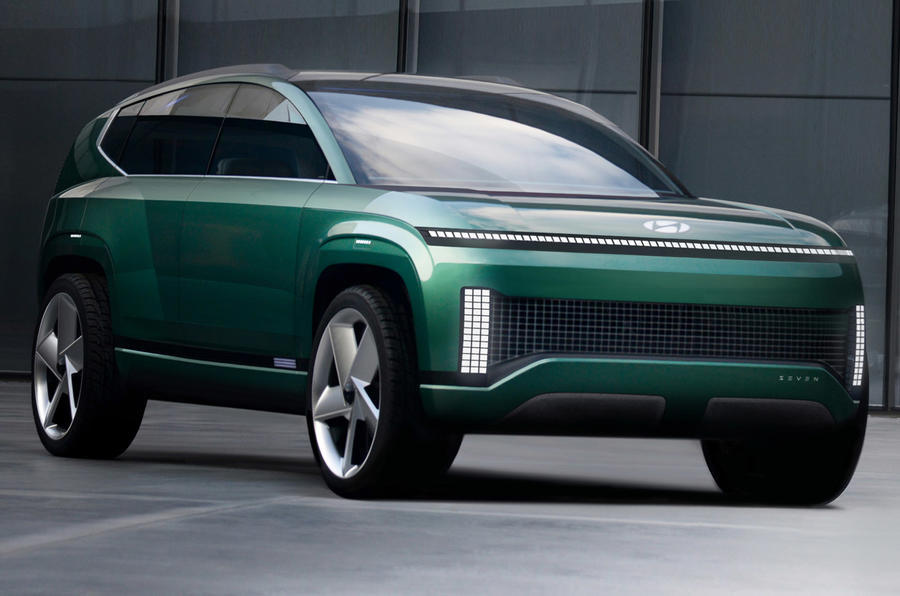
A new Integrated Modular Architecture (IMA) will be used for both passenger and ‘purpose-built’ commercial vehicles in the future.
Hyundai will introduce the second generation of its E-GMP electric vehicle architecture in 2025, which will bring standardised battery and motor systems to reduce manufacturing costs. The brand has also confirmed that it will introduce 17 battery electric cars – of which 11 will be badged Hyundai and six from luxury brand Genesis – in the next eight years. The Hyundai Ioniq 7, a large flagship SUV, has been confirmed for a 2024 launch.
- Hyundai to debut 17 new BEVs by 2030
- Move to second-gen E-GMP platform in 2025
The new Integrated Modular Architecture (IMA) will be used for both passenger and ‘purpose-built’ commercial vehicles and is promised to improve driving range over the current E-GMP platform, used by the Hyundai Ioniq 5, Kia EV6 and Genesis GV60.
It will replace the E-GMP’s variable battery packs with standardised cell-to-pack units, which can be ‘flexibly’ integrated according to the vehicle’s needs. This construction method boosts energy density, Hyundai claims, and thus charging times.
The new platform was detailed as part of Hyundai’s Investor Day presentation, where the company outlined an ambitious £12 billion (around Rs 12,000 crore) strategy to increase its annual EV sales to 1.87 million units – equating to a 7 percent market share globally – by 2030. Previously, the company said it planned to be selling 5,60,000 EVs by 2025.
Three of the Hyundai EVs will be sedans (one of which is the upcoming 2022 Ioniq 6), six will be SUVs, one will be a light commercial vehicle and another will be a “new type model” – with no further details given as to its positioning. Genesis, meanwhile, will launch two low-slung cars and four SUVs, beginning with the Electrified GV70 later this year. The brand will launch only pure-electric cars from 2025.
With regards to the batteries needed for its EV onslaught, Hyundai said it will obtain half of its “next-generation lithium batteries” via new partnerships with global battery manufacturers from 2025, and is aiming to secure 170GWh of batteries in the run-up to 2030.
On the software side, an area to which Hyundai has pledged the equivalent of £7.5 billion (around Rs 7,500 crore), the company will start updating its new cars over-the-air towards the end of 2022, expanding the functionality to all models by 2025. It plans to generate 30 percent of its sales revenue through software-related businesses from 2030.
For India, Hyundai is readying to further push into the EV market with at least three new models planned from the company, and sister firm Kia. For 2022, Hyundai is expected to launch the facelift of the Kona Electric, with the carmaker also eyeing the launch of the all-electric Ioniq 5 later in the year. Also planned is a made-for-India EV in the coming years.
Also See:
Hyundai i20 line-up to get a variant rejig, revised features list
Hyundai Venue N-line confirmed via spy shots
